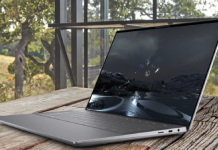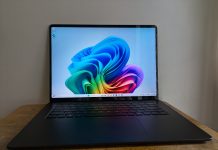![]()
The Coming to a Chromebook session at Google I/O has brought with it a new announcement from Google which we kind of expected: Google Play is coming to Chromebooks later this year.
At this stage, Google has just announced the feature will be coming and now the hard road of convincing developers to optimise their apps for Chromebooks begins. The session which was updated overnight ‘Optimizing Android apps for productivity‘ will go ahead and this is the major focus.
Android apps will be available across the various System on Chip platforms meaning you’ll not have to worry if you have an ARM or an Intel based Chromebook. All the features work like In-App Purchases, and you can also use apps offline if they’re designed that way, but it also means sometimes you’re limited because of hardware such as needing a cellular connection.
Google has been working with hardware partners to make sure that they have hardware that takes advantage of the new functionality that access to Google Play on Chromebooks brings. New hardware will be available later this year, such as the new Dell and HP hardware that’s already been announced. There’s no new hardware reference designs coming up, but Google is working with partners on new reference hardware on both ARM and x86 based systems from Intel.
With usage of Intel chips, you also get the advantage of performance of the Intel processors, meaning high intensity apps and games will be running really fast.
The announcement lists off some of the benefits that developers can find from optimising their apps for Chromebooks including:
- Android Apps can be shown in 3 different window sizes to allow the best experience
- Users can multi-task with multiple Android apps in moveable windows along with a full desktop browser, all within the familiar Chrome OS interface.
- Keyboard, mouse, and touch input will seamlessly work together
- Users will get Android notifications on their Chromebooks
- Android apps benefit from the Wifi or Bluetooth connectivity setup by the user or the administrator
- File sharing is seamless between Chrome and Android apps through the Files app
- Performance of demanding apps such as games or design apps is excellent
To achieve this, the Chrome OS team built Android Framework on top of the Chrome OS stack. This includes a complete hardware abstraction layer built to accommodate Android apps on Chrome OS. The stack will be updated like Chrome OS meaning that the Android Framework will be getting updated every 6 weeks, just like Chrome OS – this means security issues on Android can be patched much faster.
We asked Kan Liu, Director of Product Management about the possibility of incorporating adoptable SD Card storage into the use case with Android apps on Chrome OS, given that most Chromebooks come with a minimum of 16GB and some only 32GB of storage. He wasn’t able to confirm, but did say it’s not out of the realm of possibility that it will be there – basically we’ll have to try it in June when it launches.
Google advises that this will tie-in with all the administrative policies that educational institutions, enterprise customers and more have in place. Full control of access to certain hardware and functions which will now include blocking or pushing Android Apps on Chromebooks.
This still doesn’t address the issues of sourcing Chromebooks in Australia. The closure of Dick Smith Electronics, a launch partner for Chromebooks in Australia, has left quite the hole in availability. JB Hifi still supplies Chromebooks but you do have to order them in, with few stores – well, none that we’ve found – actually keeping them in stock.
Google will begin trials for developers with an update of the Chrome OS Dev channel – M53 – rolling out in early June with the feature. Developers will need to be using a touchscreen based Chromebook to start with, Google lists initial support for developers on the Asus Chromebook Flip, Chromebook Pixel (2015) and Acer Chromebook R11 – with the Asus Chromebook Flip and Acer Chromebook R11 both available in Australia.




When I read your article on this earlier in the week I misunderstood. I thought you meant it was coming to Chrome browsers but clearly it’s just Chrome OS. I thought it sounded too good to be true.
There’s a bit of difference, but could come later.
What would be beneficial, is to know which Chromebooks can have there ssd upgraded.. been looking for a new Android tablet for awhile now to replace the n7 this could now be the way to go.
Sweet. It’s a bummer this probably won’t be possible on my 2 year old Toshiba CB2, but it’s understandable. The good news is that now, this will serve as a real benchmark to wait for before I buy a new Chromebook which is defintiely in the cards.
Jump onto phandroids website. There an article that lists all of the compatible devices that will support this.